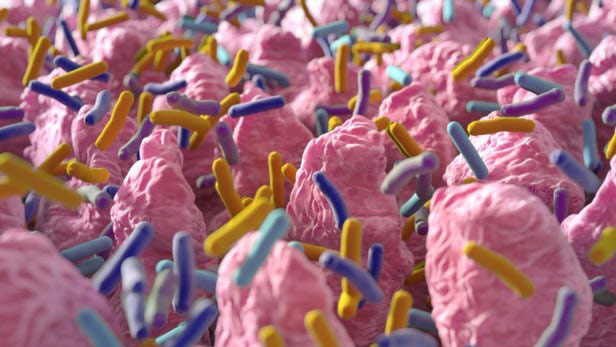99% of bacteria in the human body are not known
US scientists discovered 99% of the bacteria in the human body are not known to the scientific community.
A survey of scientists at Stanford University, USA, about foreign DNA fragments circulating in the human body shows that 99% of the bacteria inside us are completely unrecognized by scientists, according to New Atlas. The research results were published in the journal of the National Academy of Sciences (PNAS) on August 22.
This finding was done by accident when the team was investigating less invasive measures to predict whether the patient's body would reject the transplant agency. Instead of patients experiencing pain when applying tissue biopsy techniques, they only need to provide a simple blood sample. If the doctor finds the DNA of the donor organ circulating in the patient's blood, this is a sign that the body rejects the transplant.

About 99% of the bacteria in the human body are not known to the scientific community.(Photo: Anatomy Insider).
The aforementioned blood testing technique, in addition to detecting the DNA of patients and donors, also provides insight into the living microorganisms in the patient's body including trillions of bacteria and viruses.
Research results show that, among all non-human DNA in patient's blood, scientists discovered 99% of DNA is not suitable for any organism in the existing genetic database. . Most of them are members of the teno-torque family and the proteobacteria group, the most famous of which is E. coli and Salmonella.
"We found many different types of microorganisms. Most of them are completely new compared to what was previously known," said Stephen Quake, the study's lead author.
Scientists say the next step is to apply new techniques to microbiological analysis on many other animals, in order to identify viruses that can spread to humans and cause pandemics. Large like bird flu and swine flu.
- The 'amazing' world of bacteria in the human body
- Infiltrate the world of bacteria inside the human body
- 39 trillion bacteria on the human body
- Find out how to determine the time of death through human bacteria
- Bacteria determine people's lifespan?
- The truth 'silly' is not everyone knows about his body
- Bacteria, an inevitable part of ... humanity
- Video: Two lines penetrate the body of the human cannibalistic bacteria
- Science says: More than half of your body is not human!
- 20 somewhat horrifying truths related to the human body
- You won't believe these horrific images are your body
- The culprit makes the body stink
 Why do potatoes have eyes?
Why do potatoes have eyes? 'Tragedy' the world's largest carnivorous life: Death becomes ... public toilet
'Tragedy' the world's largest carnivorous life: Death becomes ... public toilet Tomatoes were once considered 'poisonous' for 200 years
Tomatoes were once considered 'poisonous' for 200 years Detecting microscopic parasites on human face
Detecting microscopic parasites on human face